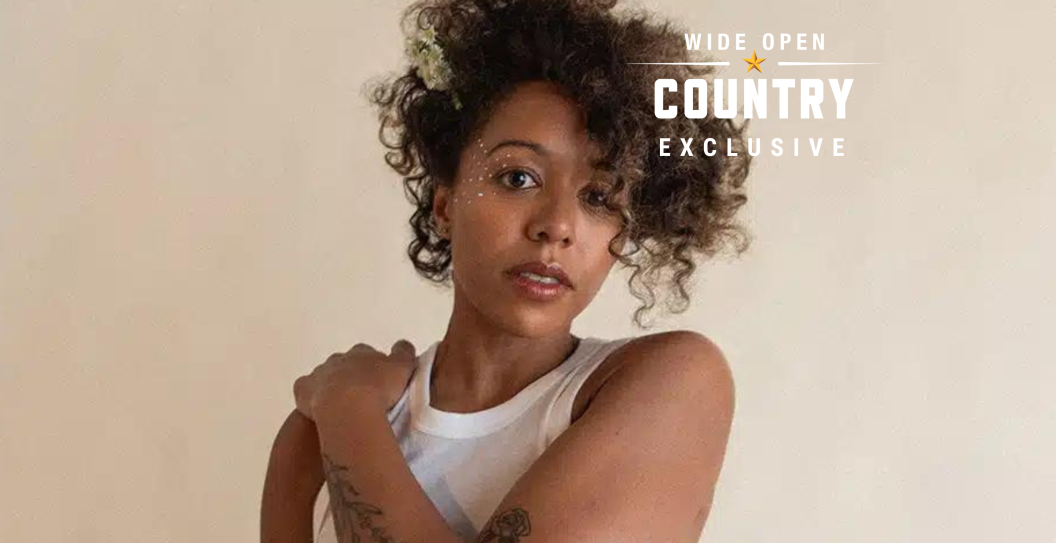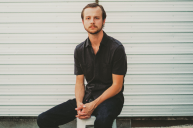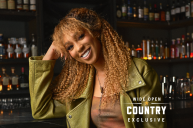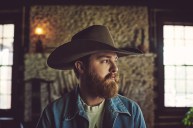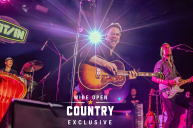Halfsies is the latest record released by singer-songwriter, podcaster and activist Lizzie No. Debuting in January, the latest project draws inspiration from literary figures, the political climate and video games. In an exclusive interview with Wide Open Country, the rising artist dived into the journey of her album's main character, Miss Freedomland, influences from her favorite authors and themes of individuality and community.
"You should start off feeling a little bit disoriented," No tells Wide Open Country. "Like you're in this world, where magical things might be happening ... but you're also fighting for your life."
The album starts out with the introduction of Miss Freedomland.
"She's basically like an alien dropped into America in a particular time and place," No says. "It's your job to figure out, 'How do I get freed? What weapons do I have at my disposal? Who are my allies? Who are my enemies? What are the things that I'm carrying with me that I need to set aside? What's my baggage?' It should feel really real and experiential."
No explains that in the beginning, Miss Freedomland is in the middle of a battle for her life. "She doesn't really have the consciousness to understand why she has suffered the way that she has and what she needs to do to get to the next level. All she knows is, 'I have this instinct that I want to survive.'"
Over the course of the album, Miss Freedomland comes to an awareness of her own history, traditions that lay a foundation for perseverance and the abilities she needs to acquire to get to the next "level."
"She comes to a consciousness of herself, gains confidence and starts to have a lot more fun," No says. "[Her spirit] is a tough-as-nails middle school girl. She doesn't have all the answers, but she really believes in herself ... and she doesn't take shit from people."
No draws inspiration from Pulitzer Prize-winning author Toni Morrison's insights on the function of white supremacy, emphasizing its role in distracting individuals from their creative work. She strongly relates to the frustration of facing discrimination and systemic barriers, particularly evident in debates about the presence of Black artists in country music.
"I just feel that so strongly," No explains. "I feel like these PacMan ghosts can pop up and literally take your life. You can think you're on the hero's journey. You're on the road and a little bit of a wreck, with this added layer of 'But it's not just my own self-destructive instincts that are coming for me.' ... It's this threat of sexual violence, the threat of 'You don't belong here,' and you're going to be pushed out. I'm navigating this world as a Black woman, singer-songwriter."
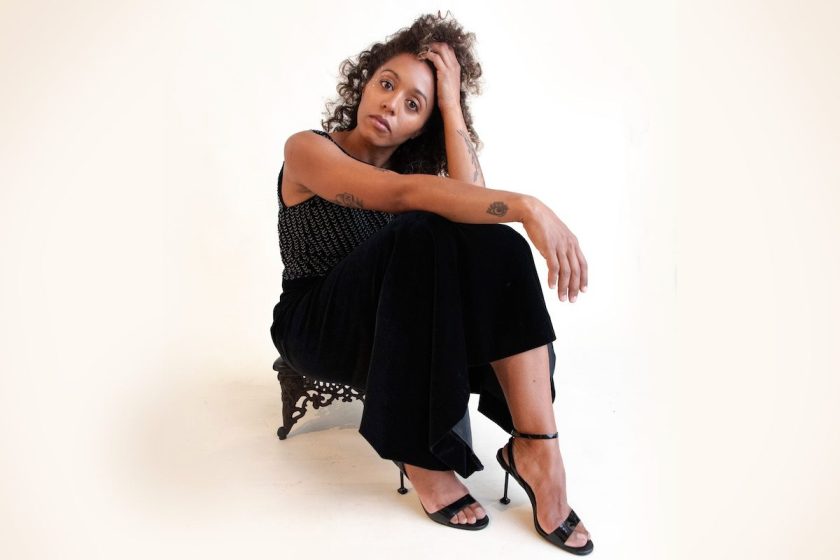
Cole Nielson
This intersection of personal and systemic challenges shapes her artistic journey, underscoring the importance of addressing these issues within the music industry and society as a whole.
"The hero's journey is something that's very universal, but I think there's something specific about Morrison that really speaks to me. [These types of writers] were not so concerned with this very white, Western notion of reality, spirituality, history, and ghosts," No explains. "And belief and mysticism are all a part of the American experience. It's really important to nod to that when we're making American or Americana music."
This idea of magical realism permeates No's sound, lyrics and instrumentation on the record. "There's moments where you can't really tell if it's real or fantasy ... where it goes between just your day-to-day 'I'm a musician on the road,' and then suddenly, you're in the Old Testament, you're in a dream, you're in the spirit world."
The idea of a video game-like experience was also significant in the construction of Halfsies.
"I wanted listeners to understand what I was going through and not objectify me," No says. "A lot of listeners don't have that immediate empathy impulse to step into our shoes. A lot of times, listeners will take a step back and say, 'That's her story,' and separate themselves from it. It's really important to me that when people are interacting with my album, that they feel like they have some stake in what's going on."
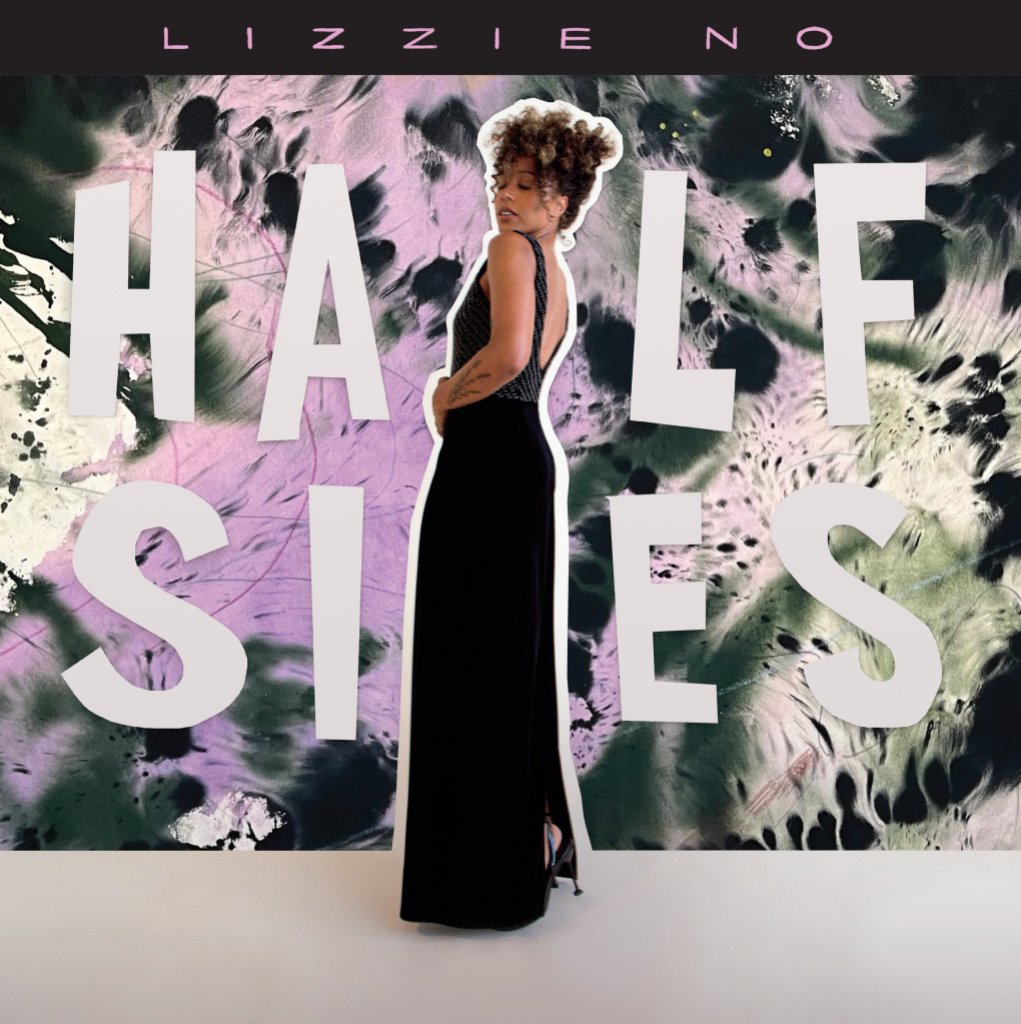
The exploration of individualism to community and belonging are central themes in Halfsies, intertwining the personal and political aspects of the album.
No criticizes the "dominant discourse" in liberal circles around healing and self-care, which she finds overly individualistic and accessible only to those with resources. Instead, she advocates for collective responsibility and community care, emphasizing the importance of moving forward together "as a human family."
"We have this idea of like, 'Well, if you just go to therapy, get a face mask and take time off, you'll feel better,'" No says. "And it's your responsibility to do that on your own. What you owe other people is to just ... work on yourself. It's really limiting, and it doesn't put the responsibility on our communities to take care of one another."
No hopes that by the time the listener reaches the end of the album, there's a conveyed sense of community.
"That's why I wanted to end the album with 'Babylon' because I wanted it to come across as a traditional spiritual — spirituals are all about the community. It's not just about me and my individual salvation; it's about redeeming the human family together. It's about creating justice here and now on this planet."
No reflects on her approach to creating her album Vanity, seeing it as a concept album with a focus on experimentation across multiple genres. She emphasizes the importance of each song standing as a standalone piece of art, with the weaving together of the album occurring during the mixing, mastering and sequencing stages.
"I'm really proud of that record," she says, "and I decided to even go further with it on Halfsies. I think about how all of these genres that like I've come to learn since I've begun my career, both as an artist and as a podcaster — bluegrass, folk and country, rock and blues — you realize how intertwined they are, and how they're all a part of this patchwork of what we call American music."
Through both her musical experimentation and thematic exploration, Lizzie No's artistic vision seeks to capture the complexity and richness of the human experience, resonating with listeners on both personal and societal levels. She invites audiences to engage with the interconnectedness of individual stories and collective struggles. Through Halfsies, No hopes to foster empathy and understanding in the process.
"I'm trying to contribute a catalog of music that tells my story and hopefully helps other people understand their own story, and how we're all linked together and how our fates are connected," No says. "'I'm very grateful for the journey that this album has taken."
